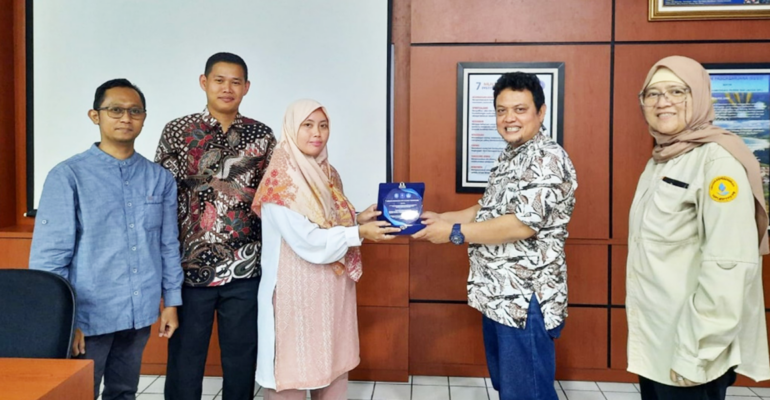Department of MSP IPB University Receives Visit from UBB to Discuss the Process of MBKM Integrated Curriculum Development

The Department of Aquatic Resources Management (MSP), Faculty of Fisheries and Marine Science (FPIK) IPB University received a visit from the Department of MSP, Faculty of Agriculture, Fisheries and Biology (FPPB), University of Bangka Belitung (UBB). The purpose of the visit by the UBB MSP team was for comparative studies and benchmarking related to the K2020 curriculum integrated with Freedom of Learning – Independence Campus (MBKM) and its implementation.
During the visit, the UBB delegation explained the structure of the undergraduate curriculum that has been integrated with the MBKM programme. It was also conveyed how the implementation of MBKM for MSPP-UBB students is currently.
The UBB MSP team also requested reviews, directions and input from the IPB University MSP Department on the K2020 curriculum structure and the implementation of MBKM at MSP UBB.
The MSP-UBB team consisted of Dr Fika Dewi Pratiwi ( Chairman of the MSP Department) and Andi Gustomi, SPi, MSi (Secretary of the MSP Department). The UBB MSP team was received directly by Prof Hefni Effendi ( Chairman of the Department), accompanied by several lecturers of the MSP Department of IPB University, namely Dr Ali Mashar (Secretary of the Department), Dr Rahmat Kurnia ( Chairman of the S1 Education Commission), Dr Ayu Ervinia and Prof Niken TM Pratiwi (Members of the S1 Education Commission), Dr Mukhlis Kamal ( Chairman of the Master of Aquatic Resources Management Study Program / Prodi) and Dr Majariana Krisanti.
“The structure of the K2020 curriculum, whether it has been integrated with the MBKM programme or not, has been arranged systematically and structured,” explained the Head of the MSP Department at IPB University, Prof Hefni Effendi.
The curriculum, he continued, is compiled based on the department’s mandate, competencies and scientific hierarchy of study programmes which are technically described in the form of learning outcomes (LO) and sub-LO.
In addition, the MSP IPB University team also conveyed the transformation of MBKM implementation until now. From the present which is still scattered in each semester to the future which will be directed and structured in one semester and linked to the main performance indicators (IKU) of the MSP Department of IPB University.
Prof Hefni elaborated several important points in the meeting. First, an agreement on assistance from the IPB University MSP team to the UBB MSP team in preparing a systematic and structured curriculum based on the mandate and competencies and scientific hierarchy of the study programme.
“Secondly, the core and fundamental courses of the MSP Study Program must be compulsory courses that must be taken by all students, not being elective courses or courses that are MBKMed,” explained Prof Hefni.
In addition, local content courses that are in accordance with MSP competencies can be included to enrich the understanding of UBB MSP students, such as related to the management of ex-mining waters and small islands.
“Finally, the implementation of MBKM for UBB MSP students needs to be designed by the study programme to be structured and directed to improve their soft skills and hard skills,” concluded Prof Hefni. (*/Rz) (IAAS/RUM)



